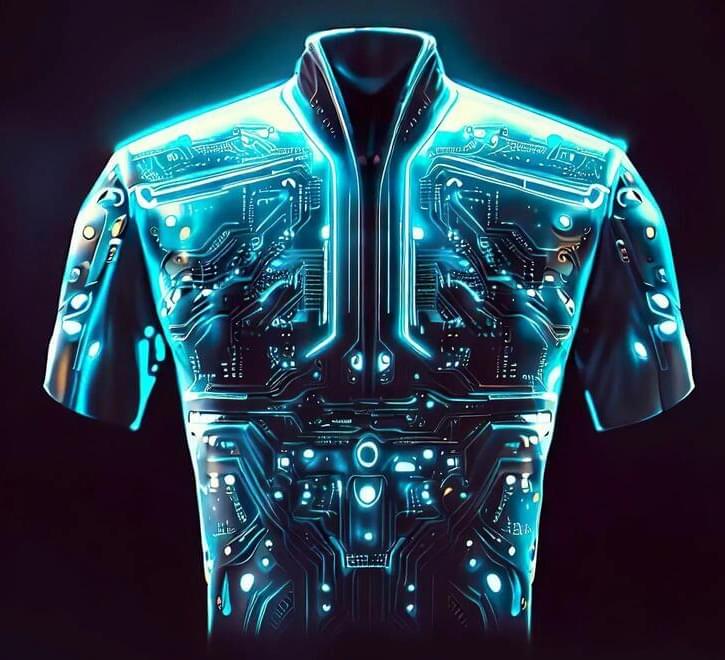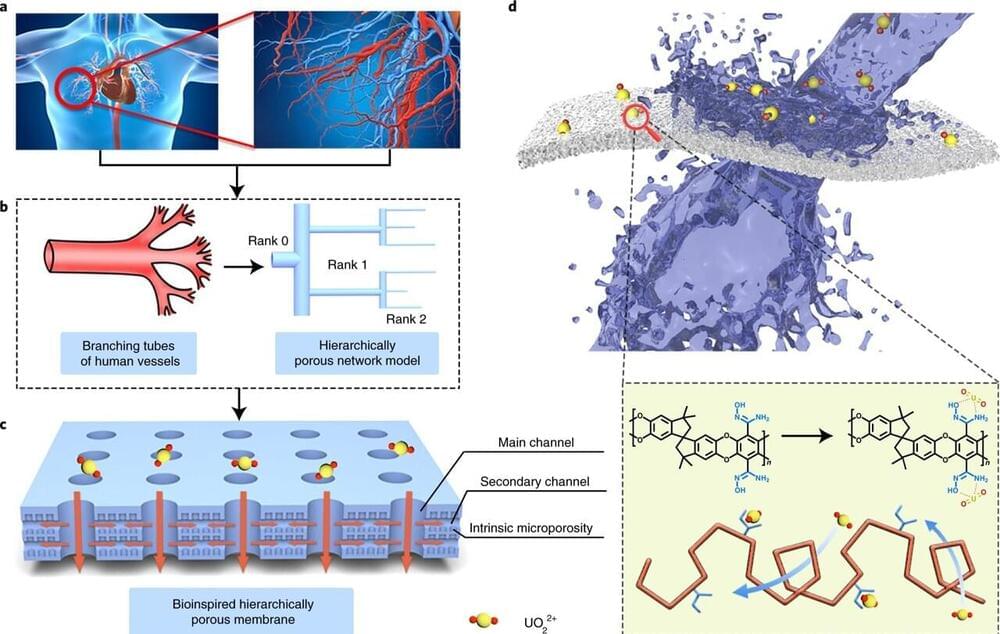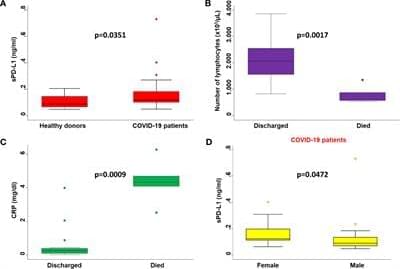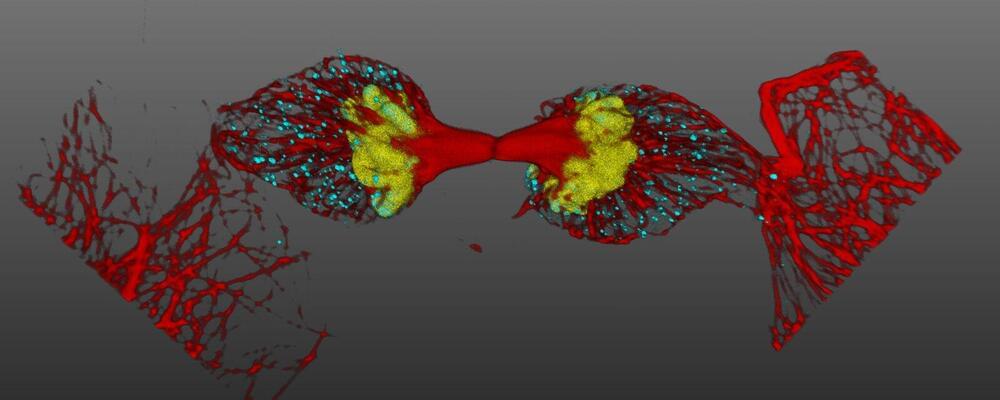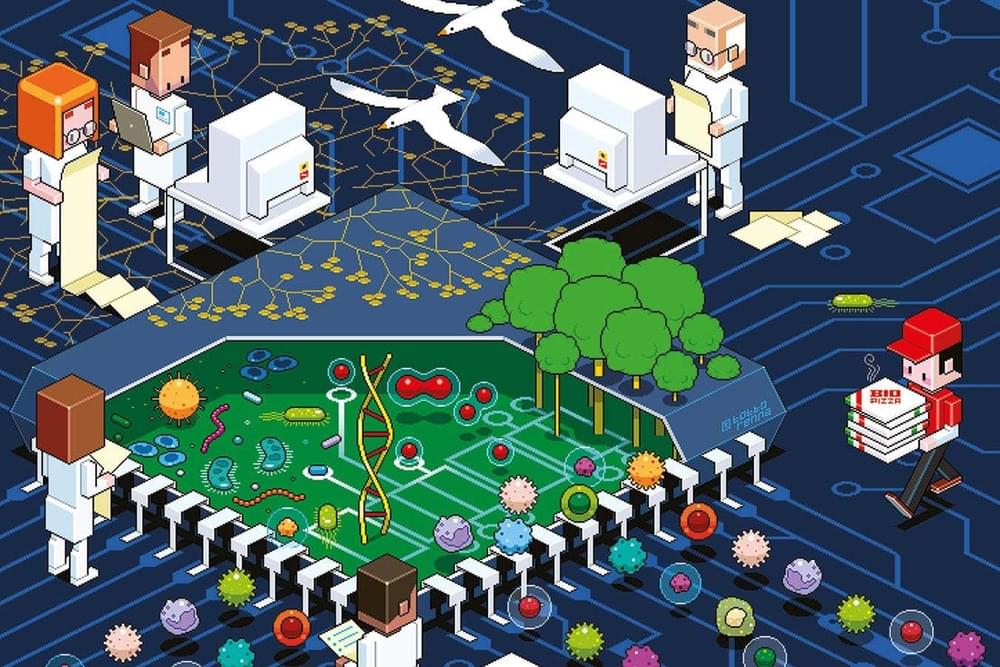Archive for the ‘biological’ category: Page 61
Jun 10, 2023
Liquid Metal Breakthrough Can Transform Everyday Materials Into Electronic “Smart Devices”
Posted by Genevieve Klien in categories: biological, materials
Chinese scientists have devised a technique to coat everyday materials like paper and plastic with liquid metal, potentially creating “smart devices.” The method, which involves adjusting pressure rather than using a binding material, successfully enables the liquid metal to adhere to surfaces, a previously challenging task due to high surface tension.
Everyday materials such as paper and plastic could be transformed into electronic “smart devices” by using a simple new method to apply liquid metal to surfaces, according to scientists in Beijing, China. The study, published June 9 in the journal Cell Reports.
<em>Cell Reports</em> is a peer-reviewed scientific journal that published research papers that report new biological insight across a broad range of disciplines within the life sciences. Established in 2012, it is the first open access journal published by Cell Press, an imprint of Elsevier.
Jun 10, 2023
Scientists Reveal the Secret to Creating “Living and Breathing” Buildings That Use Less Energy
Posted by Quinn Sena in categories: biological, climatology
The characteristics of the “egress complex” found in termite mounds can be replicated to enhance the optimize interior climate of buildings.
Of the approximately 2,000 recognized termite species.
A species is a group of living organisms that share a set of common characteristics and are able to breed and produce fertile offspring. The concept of a species is important in biology as it is used to classify and organize the diversity of life. There are different ways to define a species, but the most widely accepted one is the biological species concept, which defines a species as a group of organisms that can interbreed and produce viable offspring in nature. This definition is widely used in evolutionary biology and ecology to identify and classify living organisms.
Jun 9, 2023
Bioinspired robotics class offers intriguing surprises
Posted by Shubham Ghosh Roy in categories: biological, life extension, robotics/AI
Enter Kim’s class, 2.74 (Bio-Inspired Robotics).
According to Kim, researchers need to understand this cognitive bias, this tendency toward anthropomorphism, in order to even begin developing robots that can help humans with their physical movements. While Kim’s research interest is in building robots that could help people, such as the elderly in an aging population with fewer young people to perform services, such advancement is not even possible without understanding biology, biomechanics, and how much we don’t understand about our own everyday movements.
“One big thing students should learn in this class is not necessarily to understand how we move our body but the fact that we don’t understand how we move,” Kim says. “One of our ultimate goals in robotics is to develop robots that help elderly people by mimicking how we use our arms and legs, but if you don’t realize how little we know about how we move, we cannot even start tackling this problem.”
Jun 9, 2023
Freestyle Tricking Battle | Red Bull Throwdown 2014
Posted by Quinn Sena in categories: biological, internet, singularity

As biological singularity genes grow so will leisure activities grow and blossom. Even now tricking is a show of the real human potential in movement. Just shows us that the future is much brighter everyday with new activities that push the human potential and humans will have even greater heights of human abilities when the biological singularity genes can make us soar to new abilities.
Sixteen of the best tricking athletes came to Atlanta and battled head to head for the winning title.
Continue reading “Freestyle Tricking Battle | Red Bull Throwdown 2014” »
Jun 9, 2023
Using a pore structure inspired by biological fractals to collect uranium from seawater
Posted by Omuterema Akhahenda in categories: biological, military
Inspired by biological fractals, a team of researchers affiliated with multiple institutions in China has developed a new pore structure for a membrane used to separate uranium from seawater. In their paper published in the journal Nature Sustainability, the group describes their pore structure and how well it worked when tested. Alexander Wiechert and Sotira Yiacoumi with the Georgia Institute of Technology and Costas Tsouris with Oak Ridge National Laboratory, have published a News & Views piece on the work done by the team in China and the work that is left to do before the membrane can be commercialized.
In the 1950s, scientists realized that the world’s oceans held the potential for supplying the uranium needed to produce atomic weapons and electrical power. But it took another 30 years before a viable means of extracting uranium was developed. A team of researchers in Japan developed an amidoxime-grafted adsorbent that appeared able to do the job, but only in a limited way. In this new effort, the researchers have expanded on the work by the Japanese team to create a membrane for use in filtering uranium from seawater.
The membrane created by the team in China is based on a hierarchical pore structure that was modeled on fractals found in nature. Seawater containing uranium enters the outer portion of the membrane through macropores. The molecules in the water then migrate into a branching matrix of smaller channels. From there, they are carried to a microporous inner portion of the membrane where the uranium is absorbed by an amidoxime-grafted adsorbent. Testing showed it capable of extracting 9 mg g−1 from a sample of seawater over four weeks.
Jun 8, 2023
PD-L1 Dysregulation in COVID-19 Patients
Posted by Quinn Sena in categories: biological, biotech/medical
Year 2021 😀 😍
The COVID-19 pandemic has reached direct and indirect medical and social consequences with a subset of patients who rapidly worsen and die from severe-critical manifestations. As a result, there is still an urgent need to identify prognostic biomarkers and effective therapeutic approaches. Severe-critical manifestations of COVID-19 are caused by a dysregulated immune response. Immune checkpoint molecules such as Programmed death-1 (PD-1) and its ligand programmed death-ligand 1 (PD-L1) play an important role in regulating the host immune response and several lines of evidence underly the role of PD-1 modulation in COVID-19. Here, by analyzing blood sample collection from both hospitalized COVID-19 patients and healthy donors, as well as levels of PD-L1 RNA expression in a variety of model systems of SARS-CoV-2, including in vitro tissue cultures, ex-vivo infections of primary epithelial cells and biological samples obtained from tissue biopsies and blood sample collection of COVID-19 and healthy individuals, we demonstrate that serum levels of PD-L1 have a prognostic role in COVID-19 patients and that PD-L1 dysregulation is associated to COVID-19 pathogenesis. Specifically, PD-L1 upregulation is induced by SARS-CoV-2 in infected epithelial cells and is dysregulated in several types of immune cells of COVID-19 patients including monocytes, neutrophils, gamma delta T cells and CD4+ T cells. These results have clinical significance since highlighted the potential role of PD-1/PD-L1 axis in COVID-19, suggest a prognostic role of PD-L1 and provide a further rationale to implement novel clinical studies in COVID-19 patients with PD-1/PD-L1 inhibitors.
COVID-19 pandemic caused by severe acute respiratory syndrome coronavirus-2 (SARS-CoV-2) holds the world in thrall since early March 2020. COVID-19 manifests a spectrum of signs and symptoms from mild illness to acute pneumonia. Unfortunately, a considerable percentage of patients rapidly worse to acute respiratory distress syndrome (ARDS) requiring intensive care (1, 2).
Continue reading “PD-L1 Dysregulation in COVID-19 Patients” »
Jun 6, 2023
AI-based rare event detection harnesses the capabilities of autonomous confocal microscopy
Posted by Shubham Ghosh Roy in categories: biological, robotics/AI
Autonomous Microscopy powered by Aivia enables scientists to discover more by extracting the most relevant data from their experiments.
06 June 2023, Wetzlar, Germany - Leica Microsystems, a leader in microscopy and scientific instrumentation, has launched Autonomous Microscopy powered by Aivia. This new AI-based detection workflow for confocal microscopy automates the detection of rare events. It follows what the user has defined as the objects of interest that will trigger the rare event scan. Users benefit from the potential to discover more by automatically detecting up to 90% of rare events during an experiment. By focusing on the data that matter during the acquisition process itself, time to result can be reduced by up to 70%. The Aivia-powered workflow reduces time spent at the microscope by up to 75%, leading to increased productivity to do more.
“Autonomous Microscopy powered by Aivia brings the power of Artificial Intelligence to everyday experimental environments in an easy-to-use way,” says James O’Brien, Vice President of Life Sciences and Applied Microscopy at Leica Microsystems. “Researchers can now establish confocal microscopy workflows that address advanced experiments and biological questions that would be impossible or very laborious without automated procedures. This solution gives them outstanding new options to obtain results that answer their research questions.”
Jun 5, 2023
The unique promise of ‘biological computers’ made from living things
Posted by Genevieve Klien in categories: biological, robotics/AI
Biologists are finally beginning to corral molecules, cells and whole organisms to carry out complex computations. These living processors could find use in everything from smart materials to new kinds of artificial intelligence.
By Edd Gent
Jun 4, 2023
Discovery in Pacific coral reefs suggests Earth’s microbial diversity may be underestimated
Posted by Genevieve Klien in categories: biological, sustainability
A two-year expedition to coral reefs in the Pacific Ocean detected half a million types of microbes, the latest estimate in the quest to quantify the planet’s microbiome.
The big picture: There is intense debate among scientists about how many different types of bacteria and other microorganisms live on Earth — information that could aid conservation of species and fragile ecosystems brimming with biodiversity.

